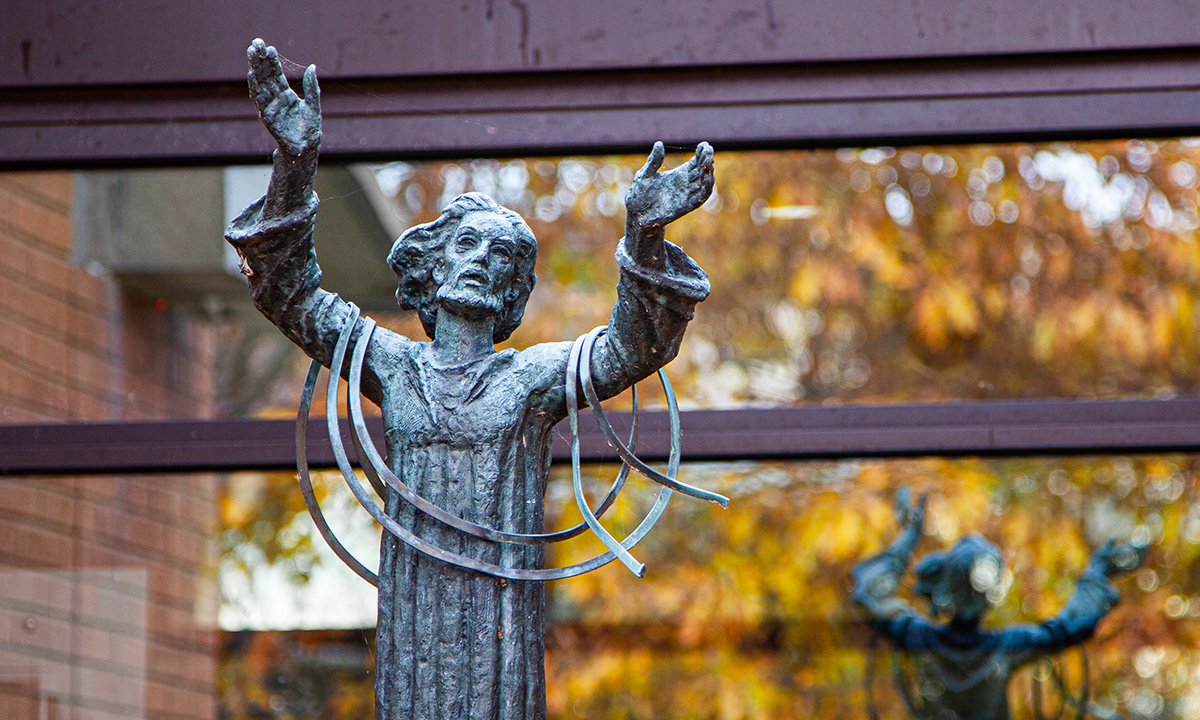
A Holy Week reflection on the nature, identity, and transformational power of Jesus Christ.
By Donald W. Little III, PhD
Recently, I had the opportunity to state who Jesus is to me and how my faith plays a role in my work as a scientist. In God’s providence, this has come as my Science & Humanity students began learning about the integration of faith and science from a historical and practical perspective. While faith and science can be challenging to grapple with, I am thankful that the Creator of all things gives us a true and firm foundation for studying His majestic handiwork (Psalm 19:1).
These truths and my testimony, therefore, have not only transformed my entire perspective on biology and life itself, but is the foundation upon which I both learn and teach.
The prompt read as follows, with my statement below:
Please state your belief of who Jesus is, what He has done, why he had to do what He did, and what that personally means to you in your work.
“Jesus is the Son of God, eternal and one in substance with the Father and Holy Spirit, who came to earth and took on a human nature to seek and save the lost. Jesus, according to the Scriptures, lived a sinless life, suffered and was crucified for the sins of His elect, rose again victoriously on the third day, and ascended to the right hand of the Father where He continually intercedes for His people until He returns again in ultimate victory and glory. The death of Jesus was the will of God for sinners, that they might be reconciled to Him due to their enslavement to sin after the fall of mankind in Adam. Through His life, baptism, suffering, death, burial, resurrection, and ascension, we are reconciled to God by faith in Christ alone, who is the only Mediator between God and man and who cleanses us of all sin by His own blood to conform us to His image.
“As a sinner who was once lost and never knew the name or truths of Jesus as the Word made flesh, God radically transformed my life at the age of 23. I surely did not find Him, but He showed me the folly of my own way which led to destruction, all the while providing me with increasing engagement with His Word and people through the church. God, as it were, plucked me as a brand from the fire, having no previous background, standing, or genealogy, except that which was encompassed in sin and misery.
“These truths and my testimony, therefore, have not only transformed my entire perspective on biology and life itself, but is the foundation upon which I both learn and teach. I am enthusiastic in my discussions of Jesus and His work upon the cross and throughout creation. God’s grace and sanctifying work by the Holy Spirit in my life continues to drive me to ask hard questions, to understand truths according to His Word, and to seek new ways to communicate these truths to my students while sympathizing with them in their common struggles against sin and misery in this world, yet encouraging them in the gospel according to their being made in God’s image.
“Upon my faith in Christ I stake all that I am and all that I do, especially in my work as an educator in the life sciences.”

Dr. Donald W. Little III is an assistant professor of biology in the Department of Life and Earth Sciences at Concordia University Ann Arbor.
Want in?
Concordia University Ann Arbor is a Lutheran higher education community committed to helping students develop in mind, body, and spirit for service to Christ in the Church and the world. In the Department of Life and Earth Sciences, our aim is to provide you with a rigorous understanding of the world around you. By taking a “hands-on” approach to learning, we’ll help prepare you for vocations in research, education, graduate studies, and much more. To learn more, click the link below.